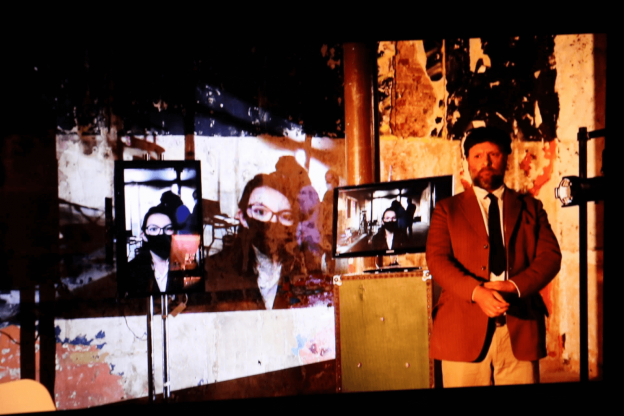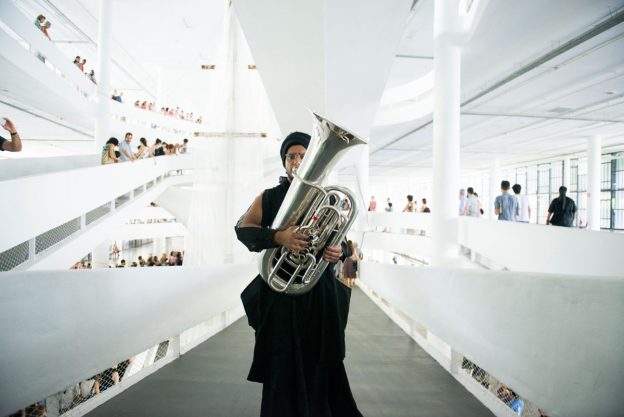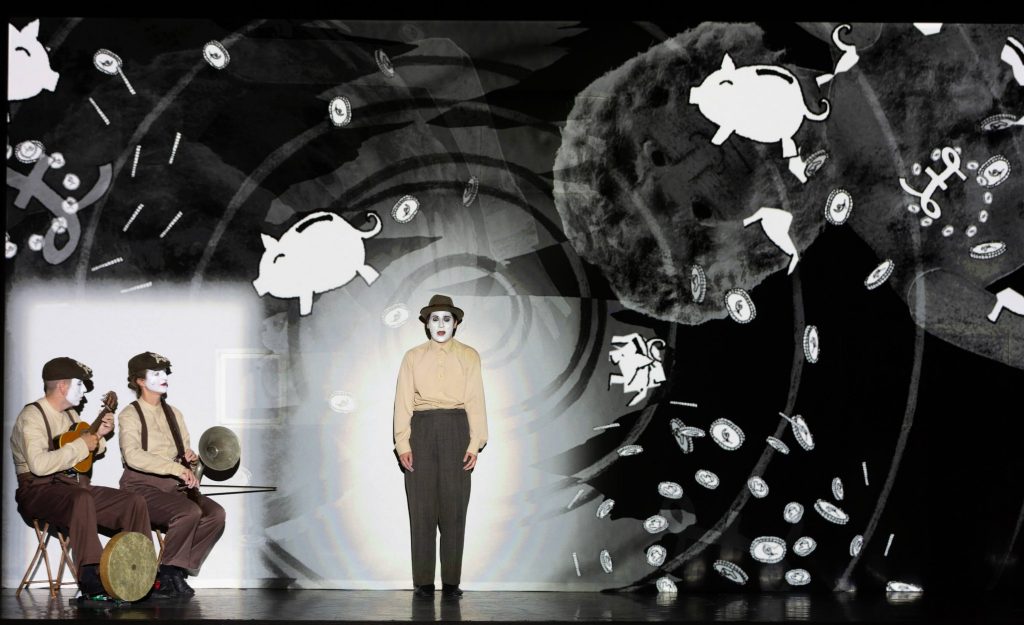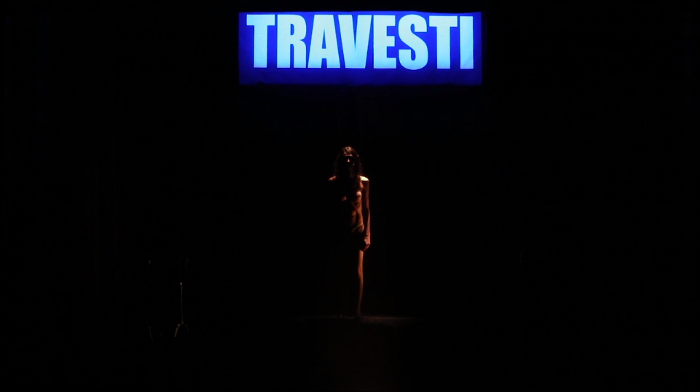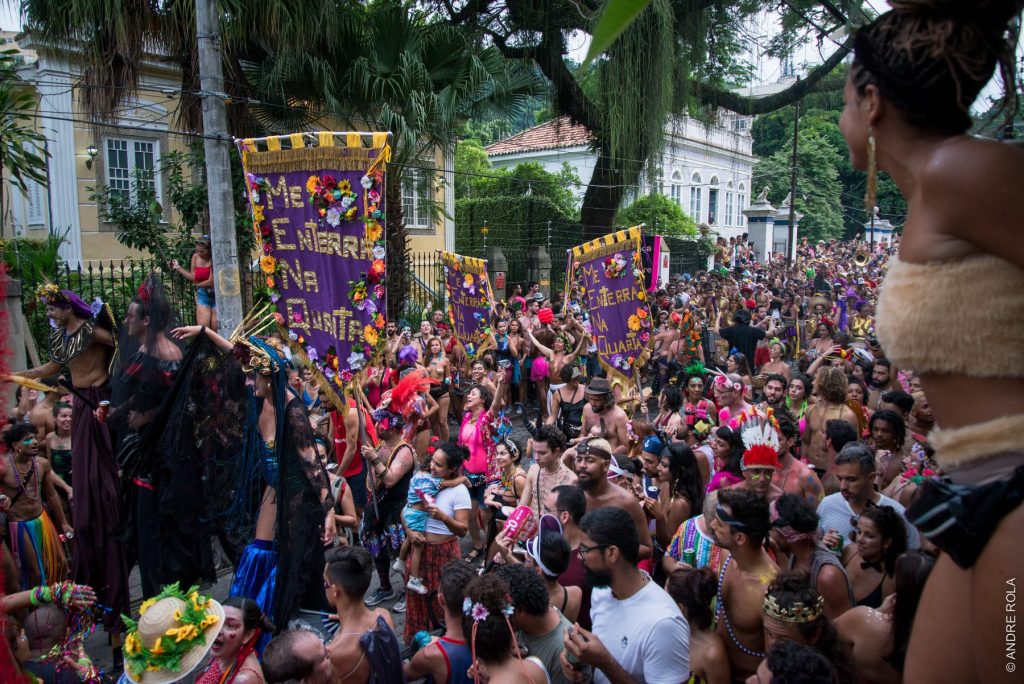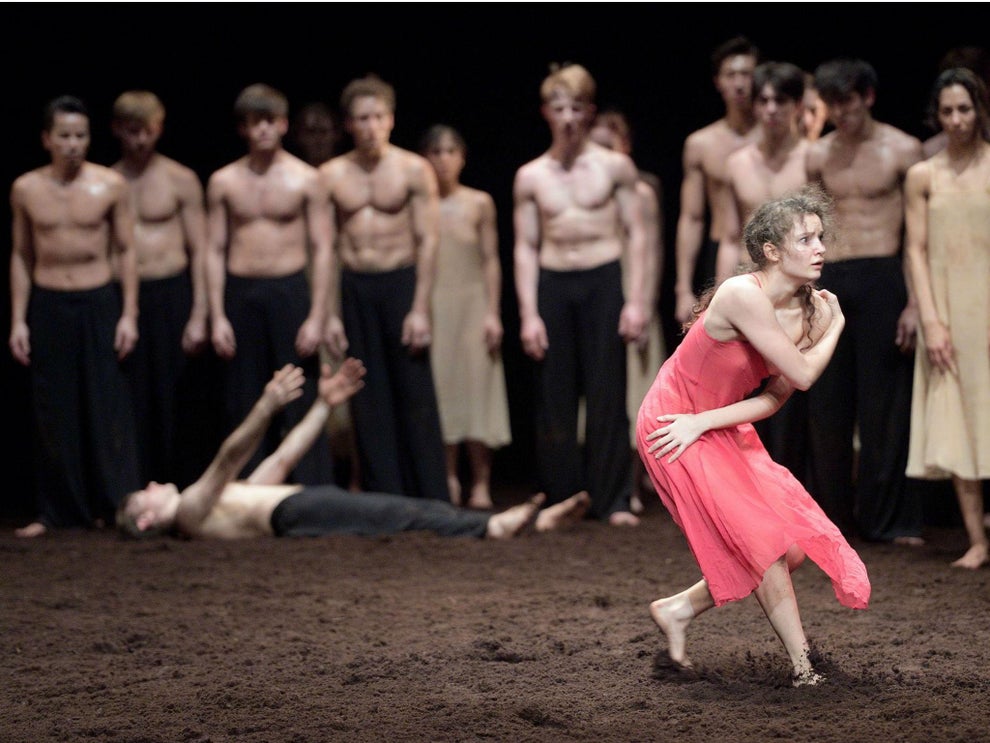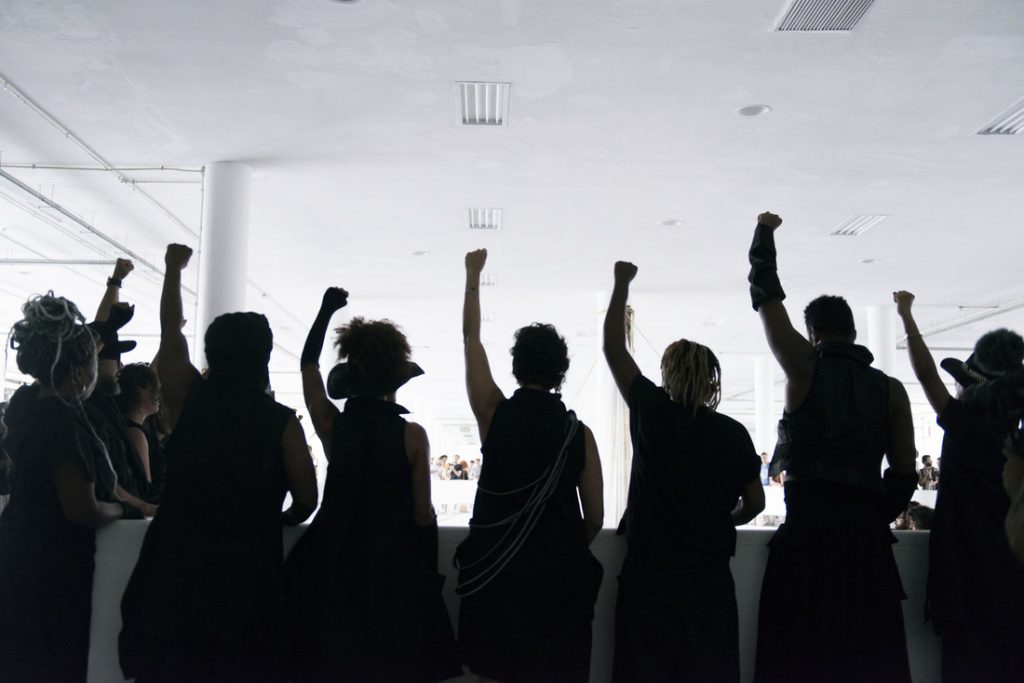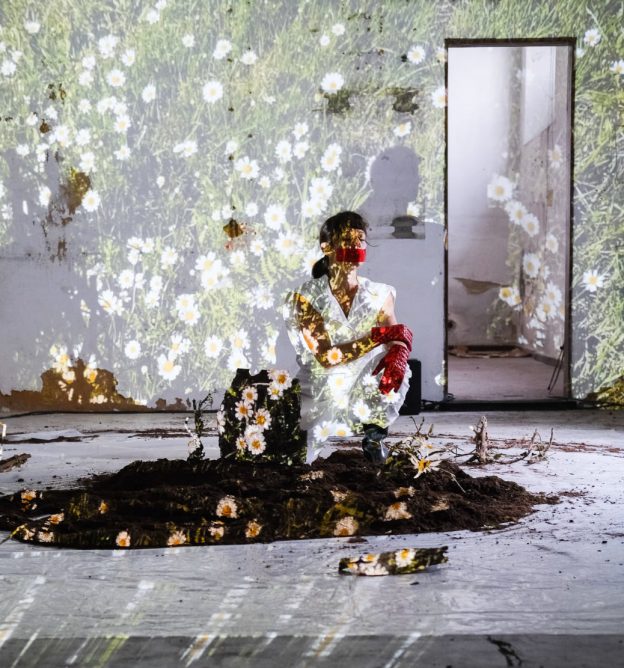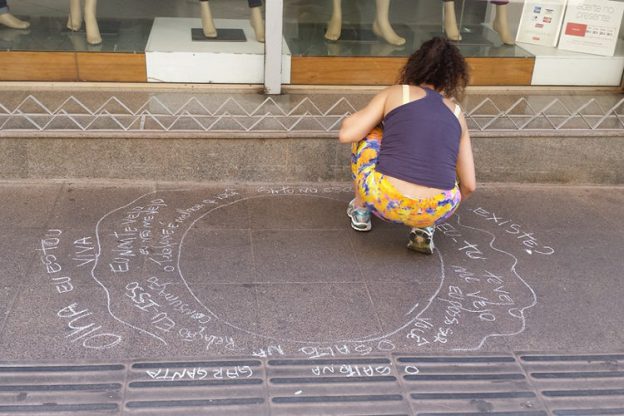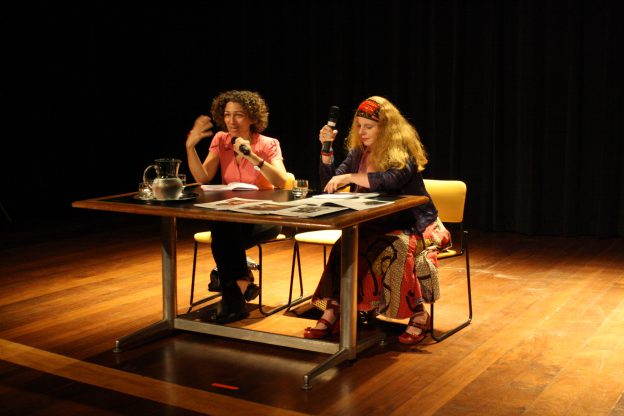Dorothy Max Prior chronicles the year that turned out to be – well, different to expected. Part two takes us from June to September 2020
Midsummer 2020. There’s hope in the air. Covid-19 case numbers and deaths are falling, lockdowns are easing, life is returning to – well, not normal but a ‘new normal’ (another of those phrases that soon became a cliché, along with ‘stay safe’ and ‘keep your distance’).
We wash our hands constantly, we stay two metres apart from people, we have socially distanced picnics in our garden or local park, we walk around wearing masks – homely paisley hand-mades, functional white disposables, cool sporty black, or fancy high-fashion sequins, or what you will. There’s talk of theatres re-opening soon: in fact, it’ll take a month or two more – they stay very low on the list of priority industries, and when they do open it is after five months dark. The internet is awash with campaigns to persuade the government to give more support to independent theatre-makers and other artists. In the first week of July, there’s a big government investment of £157 billion announced for the theatre industry – this is welcomed, but there is a worry about how much will be swallowed up in maintaining buildings rather than supporting artists. A few days later, theatres and other venues across the land are lit by night in luscious red lights to highlight the plight of the sector.
Significantly, many individual artists and theatre companies are given emergency grants from Arts Council England and other funding bodies, allowing them at the very least to stay afloat, and at best to carry on with some creative work. For some, this support means just taking a breather and looking to re-positioning their work for 2021; for others, it’s about using the money to make new work or transpose some aspects of existing work into online experiences – with greater or lesser degrees of success.
Usually in the summer months, I’d be racing round the country with a suitcase full of frills and furbelows, entertaining the good people of Brighton, Norwich, Stockton, Winchester, Hull, Stoke or wherever else with outdoor shows and interactive dance events (such as the Ragroof Tea Dance) as my Dorothy’s Shoes alter-ego. Or perhaps presenting a site-responsive show in a car-park, or wherever. I’d also be donning my Total Theatre hat to review work seen at the major summer fests, such as Brighton Festival, Norfolk & Norwich, LIFT and Greenwich + Docklands Festival. And by late June, I’d normally also be working my way through the great big telephone directory that is the Edinburgh Fringe brochure, organising accommodation and travel, liaising with Total Theatre writers and with the Total Theatre Awards producers about their plans. May to September is traditionally my busiest time of the year – juggling all of my hats constantly. Not this year.
As mentioned in part one of this 2020 chronicle, the spring lockdown lulled me into a very different mental state – I found myself more interested in listening to the birds in Hollingbury Woods or watching the waves on Brighton Beach than in tuning in to see screened theatre performances – a feeling exacerbated by a complete exhaustion with Zoom (I was now teaching three days a week on this platform, as well as all the meetings and social interactions). I know I’m not alone in feeling that the last thing I wanted to do at the end of the day was open up the computer again to stare at a screen.
But I had to admit that the big bellyful of theatre that I’d ingested in January and February, in both the UK and Brazil, together with the sense of loss the cancellation of the spring festivals brought – I was especially mourning hometown Brighton Festival, and perennial favourite Norfolk and Norwich Festival – left me feeling a little bit hungry for some new theatre experiences. And with the venues still dark in July, it would seem it had to be online (whilst acknowledging that some of the Outdoor Arts community were making some live outdoor performance happen).
What interested me was seeing what people with a history of innovative thought around both content and form might do with an online platform. Hopefully, something more than just plonking a pre-existing show online.
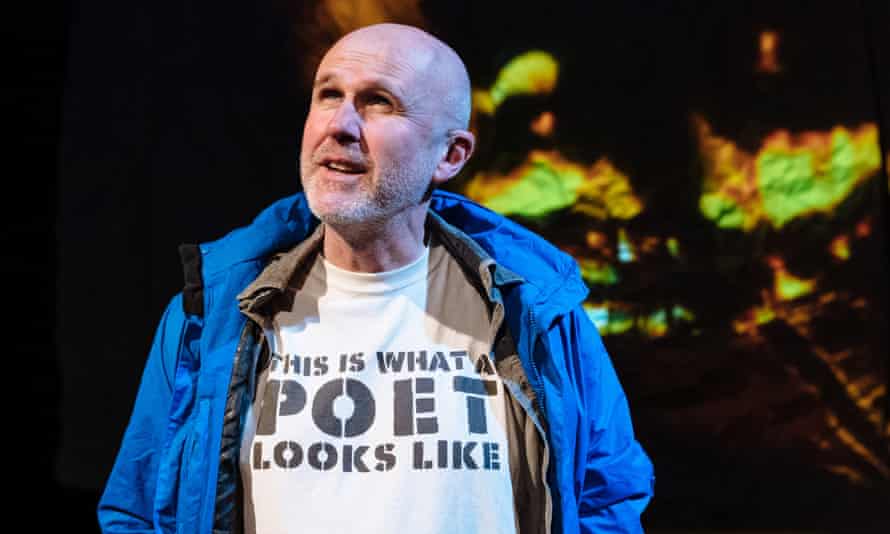
Enter stage left – Tim Crouch. When news came that he was re-working I, Cinna (The Poet) for Zoom, I signed up. If anybody can crack this, Tim can, I thought. And he didn’t disappoint. He is live, in the space. We are live, at home but here at the same time, not watching a pre-recorded show. Already I’m starting to muse on the shifting definition of theatre, from a shared space to a shared time. The show is set up in conference mode (oh, all these Zoom terms, suddenly so familiar). We, the audience, are here but can’t see each other. But we can click on the little hand icon or suggest questions through the Q&A option, joining in at given moments. The play (one of a series that includes I, Malvolio and I, Peasebottom) deconstructs Shakespeare’s Julius Caesar, re-telling key moments of the play from the perspective of Cinna the poet – who is not to be confused with that other Cinna, the conspirator – and expanding Cinna’s role from a minor character to the centre of the (in)action. What use is a poet in times of political and social upheaval, is the question at the heart of the piece. What use are words?
On our screens, we see a stark room, like a police interview room, or one of those unloved spare rooms in a school or other institution. Watching Tim/Cinna filmed in his confinement feels a bit like watching CCTV footage. We are with him, live, witnessing his distress, but we can’t intervene. A formica table, a chair, a kettle. ‘I won’t go out today, not to those streets’ says Cinna. He is neither agitated nor morose, but there is an edge, a sense of danger. Outside is dangerous. Stay home. Oh yes, so perfect for our times! He comes close to the camera as he speaks, looks us straight in the eye, moves back. The piece is elegantly directed, beautifully delivered. We think of Beckett, where every physical action and every pause is perfectly choreographed. ‘I won’t go out again today,’ he says, brandishing a chicken. ‘I will live quietly in the shadows – make soup.’ He talks of the city holding its breath. Later, he says ’I am silent and I am scared’. Together, we write poetry. We make art from words. Word-pictures. ’Think of words as a republic’ he says. ‘All made of the same 26 letters, all equal’ But are they? All equal? This is a show about the power of words. Some words can get you killed. While the kettle boils in real time, we do a quiz, of sorts: ‘I would die for…’ ‘I would kill for…’ Some share their answers. Children are mentioned a lot. We see footage of real-life Black Lives Matter protests and the news of Ceasar’s assassination, delivered as if it had just happened. Maybe it had. What is time, after all? What is real, and what is pretend? Are they allowed to show that, asks Cinna. A man’s death live on TV – are they allowed to show that? I dreamt this, says Cinna the Poet. I dreamt this. And he steps outside the door.
With the ante for online performance well and truly upped by Tim Crouch, I have an appetite for more. A week or so later, in August, come Nigel Barrett and Louise Mari (of Shunt fame) with A Conversation – an interrogation of Ethel Cotton’s 60-year-old etiquette course on the art of conversation, performed live ‘from the heart of London’s West End’ as part of the Electric Dreams Online Festival. Like Tim Crouch’s I Cinna, the show had previously existed as a regular live play. As is usual with their work, the show is performed by Nigel and directed by Louise. Richard Williamson, who designed the lighting for both the original show and this new version, had another crucial role – creating the digital platform it used for its live broadcast (the company were determined to make something that was ‘more than just a Zoom call.’). When you book your place, you say whether you want front or back row seats. Nigel is there onstage in the beautiful site that is the Stone Nest Welsh Chapel. Using an advanced modification called ZoomOSC, plus other technical wizardry, the screen we see has Nigel in the middle, with a ‘picture frame’ surround of little postage-stamp squares, each showing a ‘front row’ person in it (the front row are told when they book that they will need to keep their camera on, and are invited to bring along drinks – Nigel’s tipple of choice will be a G&T, we learn).
This is an interactive performance, and in scenes that invite the audience in, we have up to four people in Nigel’s space: two on traditional screens set within the theatre space; one on an iPad in Nigel’s hand; and one projected onto the rough stone wall behind him. It is completely magical, particularly the moments where people suddenly ‘jump’ into his space from the picture frame surround. Nigel recites verbatim sections from Ethel Cotton’s guidance on how to hold a conversation. Some of these seem extraordinarily dated (those relating to race and gender, say); some right of the moment (those relating to kindness and consideration of others, say). The words are placed in dialogue with visual images/physical actions, as Nigel dons wigs, frocks, topcoats, hats, and other accoutrements, becoming a whole ensemble of personae. Endeavouring to further the art of conversation, he engages the front row in exchanges about holiday highlights, notable birthdays, and exciting adventures. Sky-diving! Pot-holing! These are later re-enacted as he feeds back people’s words to them, now worked into odd little theatrical monologues. A wondrous show – and probably the cleverest use of Zoom any of us are likely to encounter.
The thing that the above two shows share for me is both their inventive use of Zoom, and the fact that I hadn’t seen the previous ‘live onstage to live audience in auditorium’ versions (you can see I’m struggling to find the vocabulary for what we previously just called ‘theatre’). I also, around this time, got to experience a reworked version of a show previously seen live: 1927’s Roots, which was presented as a Radio 3 broadcast, commissioned as part of the BBC/ACE Culture in Quarantine season. Oddly, re-named as Decameron Nights, and even more oddly, labelled as and broadcast in The Essay slot – why? Suzanne Andrade’s stories work very well on the radio, paired with Lilian Henley’s reworked sound compositions. But I did so much miss Paul Barrett’s animations, and the fabulous array of unusual instruments played by the performer/musicians in the stage version. So I felt it didn’t completely work for me – but I am sure that for those who hadn’t seen the show previously, the three episodes would stand alone well as audio pieces.
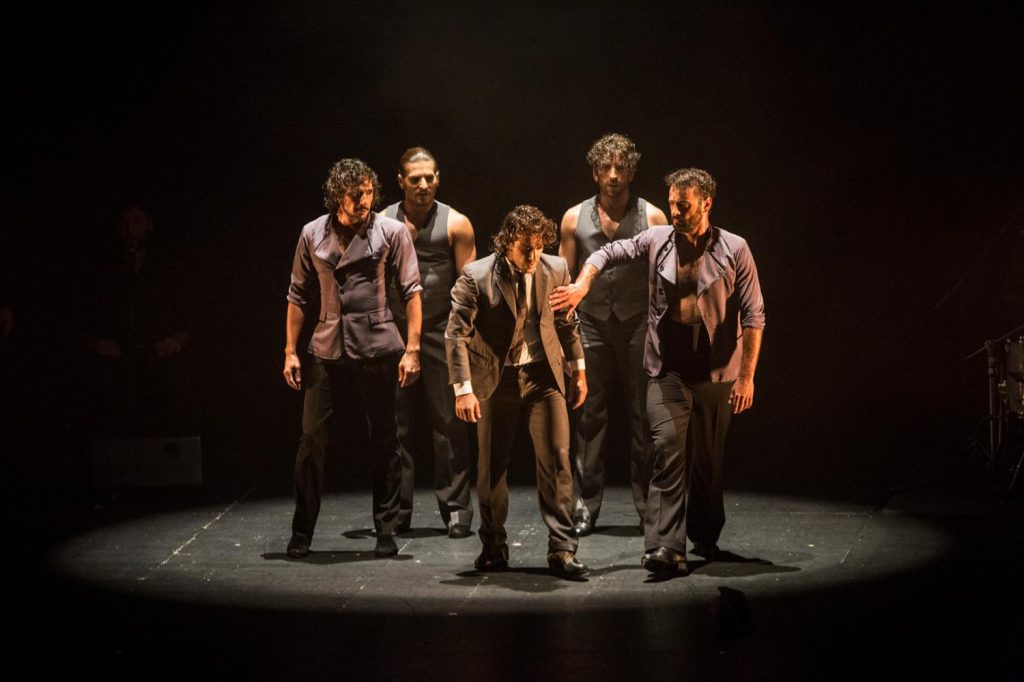
So now we are in August – theatres start to tentatively open their doors, but this is little more than a theoretical change for many, as there is nothing that can be programmed in on such short notice. Many traditionally have nothing in-house in August, when the whole theatre world would normally be in Edinburgh. The stop/start, will they/won’t they manner in which the re-opening has been, ahem, ‘managed’ by our dear government means that most are struggling to know what to do and how to do it. Meanwhile, Eat Out to Help Out is launched, to bolster up the struggling restaurant sector. It’s debatable whether offering reduced costs to people who would have gone out as soon as they were allowed to anyway is a good use of government money – but it does seem to give the country a boost, and the streets and bars and restaurants are filling up again with merry revellers. Some theatre folk start up a Seat Out to Help Out campaign, to encourage the government to similarly boost theatre by offering a free seat for every bought seat.
But I miss all this. I’m in Spain – for yes, the musician husband is back playing flamenco guitar in Andalusia, and I’ve gone along for the ride. It’s a very different world. The major festivals have cancelled their 2020 editions, yes – but galleries and theatres are open, and fairly well attended. Masks are worn by everybody, everywhere – indoors and outdoors, even on the beach. In all my time there, I see only two people unmasked: a very old gypsy gentleman with brown leather skin and flowing white locks, walks unchallenged from his cave in the Sacromonte hills,through the Albayzin; and emerging from the famous squat next to the Plaza Joe Strummer, a hardcore ageing punk in combats strides briskly down the street sans mask. Although he may well have had a mask in his pocket, as here it’s no mask, no entry to shops or on to buses. No exceptions. It’s great to be seeing and hearing live performance nightly – outdoor flamenco music and dance in Granada replacing indoor fringe theatre in Edinburgh for this particular August. I get to see one theatre show. Legendary dancer and choreographer Eva Yerbabuena’s Carne y Hueso is the closing event for a season of work dedicated to Granada’s most famous citizen, Federico Garcia Lorca, in the Summer Nights with Lorca festival at the Generalife, a magnificent outdoor space that is part of the Alhambra complex. It’s a dance-theatre piece that is focused around flamenco (of course) – traditional dance and song, but with a theatrical structure using all the mores of contemporary scenography to create a visually beautiful piece of work, in which solo figures, duets, trios, quartets or the whole ensemble of singers, dancers and musicians come in or out of frame through shifting lighting states; or move in and out of mathematically precise patterns and groupings; the percussive sounds of feet, hands or instruments setting the pace and evoking moods and images of conviviality or conflict; the three talented and very different singers telling the story, on their own or in dialogue with Yerbabueno and the other dancers.
Back in Blighty, post quarantine (which is bizarre, as Spain is safer than the UK, all things considered – who is being shielded from whom, we wonder, but we do as we’re told, even if others don’t) we note that Brighton’s seafront has grown a new outdoor venue: The Warren, a regular Brighton Fringe fixture, has moved from May to August/September, and from its usual space inland to the beach. This is interesting for a number of reasons – not least because they’ve broken away from the Fringe, who have messed everybody around rather by refusing to properly cancel the Fringe in May, ‘postponing’ it and moving it to October 2020 (but where does that leave May 2021, we all asked). The major venues, including The Warren and The Brighton Spiegeltent, didn’t go along with this let’s-move-to-October notion, so we now have an oddly fragmented Fringe sector in Brighton. No one quite knows what will happen next.
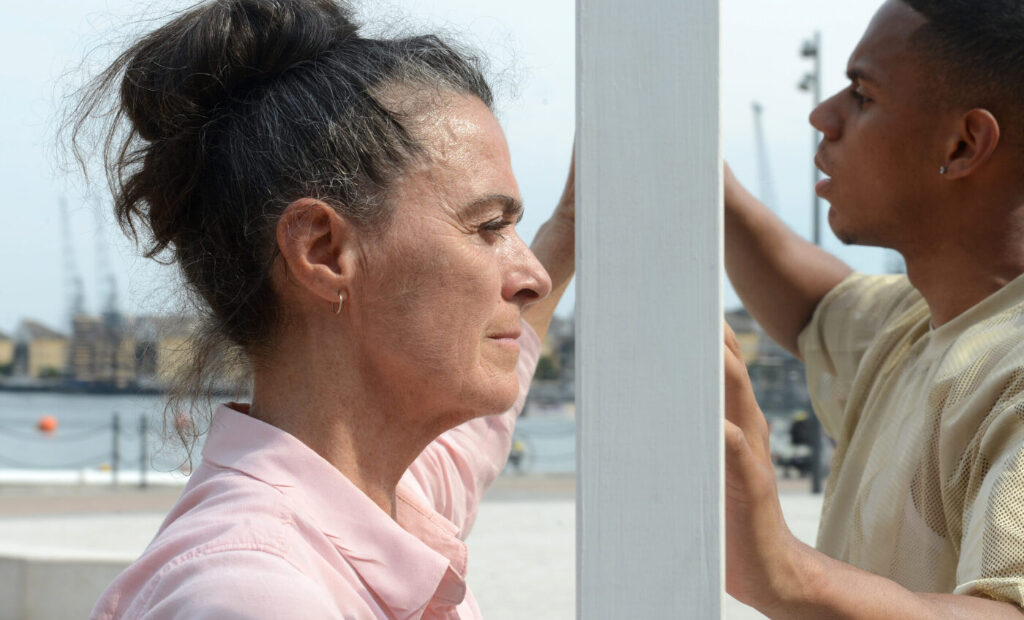
Not only, but also: one of UK’s most established outdoor arts festivals, Greenwich + Docklands, shows the world that their gamble in going ahead, by switching from June to August/September, had paid off. I missed it all, being in quarantine until mid-September, but this is an important milestone, so I report vicariously from the company’s website:
Reimagined to facilitate social distancing, the festival saw over 150 performances and welcomed over 20,000 people over three weeks. With an emphasis on UK artists, commissions included 846 Live, a co-production with Theatre Royal Stratford East created in response to the murder of George Floyd. Luke Jerram’s In Memoriam was an installation of flags made from bed sheets, created in memory of those lost in the Covid-19 pandemic; and Bernardine Evaristo’s The Weavers of Woolwich brought a people’s history of Woolwich right up to the present day, presenting it on a giant illuminated book. Many artists and companies adapted productions to accommodate social distancing. These included Upswing’s Catch Me, an intergenerational circus and contemporary dance duet exploring isolation with the use of a Perspex screen; and Mimbre’s To Untouch which replaced the company’s traditional close-contact acrobatics with movement which evoked the emotional and physical sensation of touch.
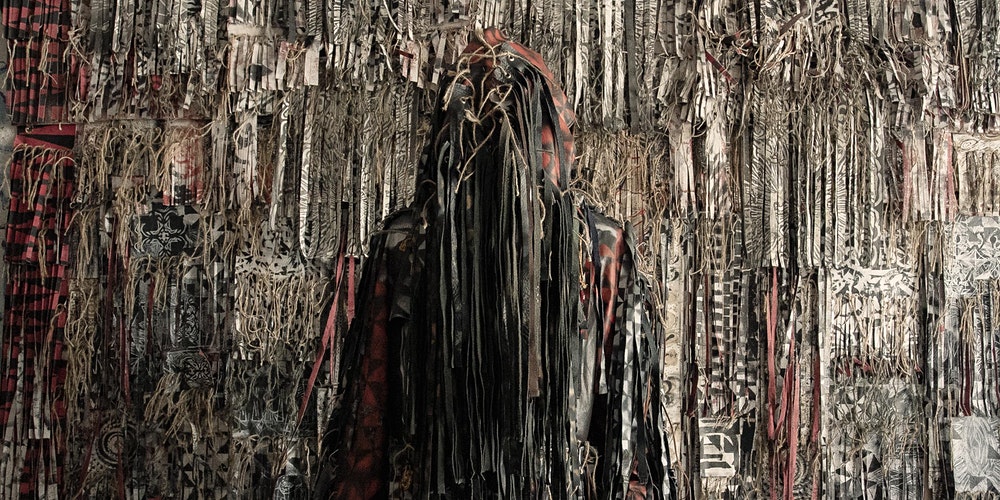
I emerge blinking into the world post-quarantine as the days shorten, to witness one of my favourite venues in Brighton, The Rose Hill, announce a new event – Raising the Spirits. Opening their doors mid-September for the first time since March, the Rose Hill’s show is a new audio-visual interactive installation by artists-in-residence Jim Sanders (visual artists and sculptor/installation maker), Abraham Moughrabi (producer and sound designer), film maker Iloobia, and creative technologist Benedict Sheehan. Raising the Spirits invites us to enter an Otherworld ‘where the sights, sounds and smells take you on an immersive journey through your subconscious’. As we arrive we are greeted, given a glass of what appears to be mulled wine enriched with a healthy dash of herbs, and then sent into the space to wander alone (or with our companions if we’ve come in a bubble). A real fire burns in the hearth, emitting strange intoxicating woody smells, as projected flames dance on the walls. Jim Sanders’ trademark totem-pole sculptures command the space. Figures obscured by whole-body masks made of what seem to be shredded natural materials and fabric strips – so they resemble straw bears or other strange folk creatures – are lurking in the darkness. Are they mannequins? Ah no, they are real… In a back room, Iloobia’s films are projected onto the ceiling, a riot of ever-changing shapes and images, in a palette of black, white and blood-red; Abraham Moughrabi’s intense soundscape pulling us in. On the floor are two ceremonial masks. Should we pick them up? They seem to be inviting us to… It feels thrilling to be back into the world of live art. Zoom can do many things, but it can’t make up for the lack of taste, smell and touch – and the visceral experience of being in an actual 3-D space.
It feels like things are on the up, with theatres and galleries opening up, artists once again meeting in real space to work together, companies forming bubbled rehearsals for new shows in progress, film and TV production stepping up to fulfil delayed schedules.
There are some warning signs that Covid cases are rising again, following all the opening up that has been happening. But still. We’re on the up, yes? We can see light at the end of the tunnel.
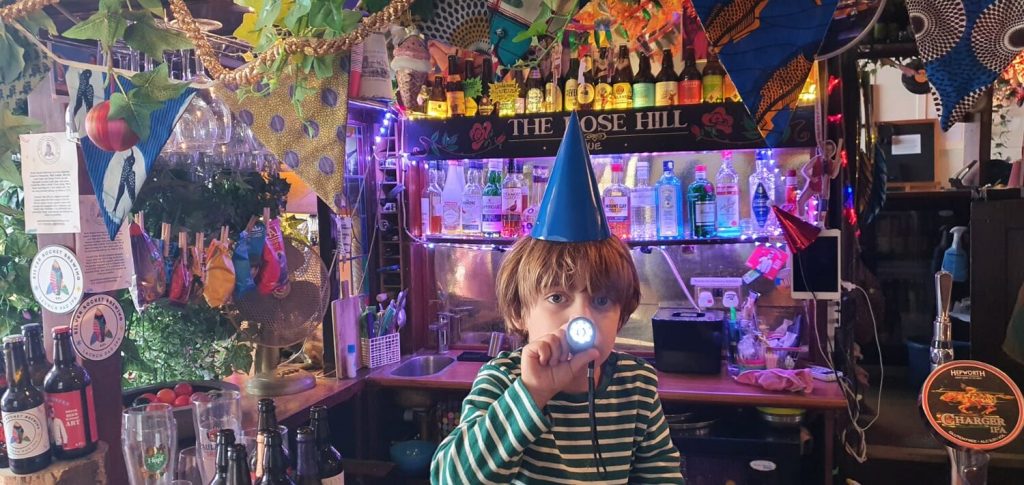
Image credits, top to bottom:
Featured image (top): Nigel Barrett and Louise Mari: A Conversation, performed live on Zoom+; Tim Crouch: I Cinna (the Poet), performed live on Zoom; Eva Yerbabuena: Carne y Hueso, live onstage at Generalife/Alhambra, Granada; Upswing: Catch Me, live outdoors at Greenwich + Docklands International Festival. Photo Dave Pickens; Jim Sanders, Abraham Moughrabi, Iloobia, and Benedict Sheehan: Raising the Spirits, live installation/interactive performance at the Rose Hill, Brighton.

